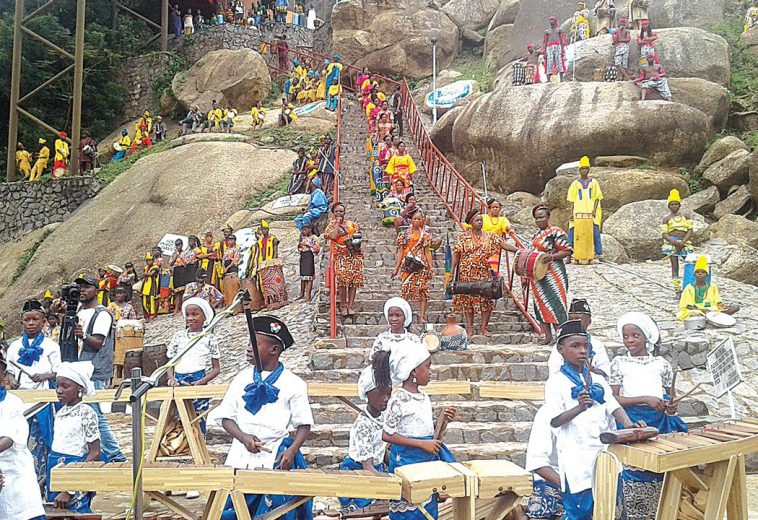Education, the very thread that interconnects all facets of progress, assumes unparalleled significance. The prosperity of African nations hinges upon a high-quality, inclusive, and equitable educational landscape capable of breaking the shackles of poverty. Astonishingly, global research conducted by Action Education, an NGO advocating superior education worldwide, reveals that a staggering 258 million children and young individuals remain excluded from the realm of schooling. Even among those who do attend educational institutions, the prevailing education often falls short of imparting fundamental skills. Disturbingly, 617 million children today, despite spending a minimum of four years in school, struggle to read even the simplest of sentences (Global Education Monitoring Report, UNESCO, 2018).
The prevailing statistics on global education invoke concern, necessitating swift action to ensure an education of unquestionable quality and equal access for all, accomplished through augmenting educational budgets and transforming learning outcomes in Africa.
For instance, Kenya has set its sights on becoming a newly industrialised country by 2030, recognising that education reform plays an integral role in achieving this ambition. To this end, the Kenyan government, in collaboration with GPE, a dedicated education-supporting entity, is systematically dismantling barriers to quality education. Measures include raising teaching standards, enhancing access to textbooks, and providing clean and safe sanitation facilities, with a primary focus on empowering marginalised children, including girls and refugees.
Embracing the partnership with GPE since 2005, the Kenyan government has benefited from expert guidance and financial support, with a substantial grant of $88.4 million for 2015–2020 and an additional $9.7 million for 2020–2022. This funding has propelled the nation towards achieving its goals as envisioned in the Primary Education Development Programme.
Diligently crafted, Kenya’s National Education Sector Strategic Plan 2018–2022 stands as a government-led blueprint, incorporating invaluable insights from past education initiatives. Earnest appreciation from development partners and civil society organisations attests to the plan’s efficacy in steering Kenya in the right direction and effectively addressing vital issues concerning governance and accountability.
According to the World Bank, Sub-Saharan Africa contends with the highest rates of educational exclusion among the six developing regions worldwide. Shockingly, over one-fifth of primary-age children remain excluded from formal education, while nearly 60% of youth aged 15 to 17 require enrollment. Among the manifold barriers obstructing education for low-income families, the burden of school fees remains prevalent across Sub-Saharan Africa, placing immense financial strain on households. Addressing this challenge, the introduction of digital financial services emerges as a potential solution, easing the burden of school fee payments and safeguarding children’s access to education.
Startling data from the new Global Findex report reveals that over half of adults in Sub-Saharan Africa (54 percent) express grave concerns regarding school fees, with 29 percent ranking it as their top financial worry (above medical expenses, retirement funds, and monthly bills). School fees top the list of financial concerns in multiple Sub-Saharan African countries, including Kenya and Nigeria.
The profound education gap perpetuates a vicious cycle of poverty, inequality, and sluggish economic growth. To break free from these chains, governments must prioritise education by allocating substantial proportions of their budgets to this pivotal sector. While such a move may necessitate African governments to delve deeper into their coffers, the ensuing long-term benefits will far surpass our present realities.
In Nigeria, esteemed education stakeholders and experts have passionately urged President Asiwaju Bola Ahmed Tinubu to magnify the education budgetary allocation by 20%. Citing the imperatives of achieving SDG 4—universal, inclusive, and equitable basic education for all school-age children—they emphasise that despite claims by successive Nigerian governments to boost education funding, the budgets have yet to meet international standards. Consequently, it is crucial for the current administration to allocate considerable funds towards incorporating technology seamlessly into Nigeria’s education system.
Furthermore, addressing the most pressing issues confronting African education systems involves ensuring robust infrastructure. Numerous schools lack fundamental amenities such as classrooms, electricity, running water, and sanitation, thereby hampering learning and discouraging student attendance. Amplified education funding would empower governments to invest in school construction and renovation, fostering a conducive learning environment for students. Modern classrooms equipped with cutting-edge technology and resources would enhance educational quality and furnish students with invaluable 21st-century skills. Moreover, an extensive increase in the education budget has the potential to mitigate Africa’s chronic teacher shortage.
With UNESCO projecting a pressing demand for access to education worldwide, an additional 4.6 million teachers will be required by 2030. Insufficient teacher numbers manifest as overcrowded classrooms, diminished individual attention, and subpar learning outcomes. In response, governments must implement targeted incentives to attract and retain teachers, fostering a consistent and high-quality in-person instructional environment.
Additionally, funding and resources should be channelled towards incentivizing teaching in schools that historically grapple with resource disparities, especially those catering to students disproportionately affected by a scarcity of teachers, such as children of colour and those from low-income families.
States and districts should also consider implementing expedited changes to licensure policies to facilitate teachers’ journey towards obtaining initial certification and transitioning into full-time teaching roles.
While teacher shortages indisputably impact student learning and achievement, the exigencies of support staff in schools also significantly influence students’ experiences. Reports indicate that certain African districts have been compelled to revert to remote learning due to inadequate staff for student transportation or meal preparation. Moreover, schools grapple with supply chain disruptions, leading to shortages of nutritious food and delayed deliveries, thereby compelling institutions to seek innovative means of providing consistent sustenance to children.
The crisis, often stemming from the proximity of retirement, inadequate compensation, and reduced working hours for support staff, necessitates comprehensive intervention.
Recognising that elevating girls’ and boys’ school years and the skills they acquire therein contributes to positive economic growth, safeguarding girls’ secondary education assumes paramount importance.
Proactively nurturing high-quality education today will facilitate skill development for the future workforce, boosting incomes, fostering economic growth, and broadening Africa’s markets and trading alliances.
The impact of education extends beyond economic realms, offering a potential deterrent to violent conflicts. Equitable education provisions, particularly in countries with sizable youth populations, signal the government’s commitment to addressing people’s needs and equipping them with tools for peaceful conflict resolution. As researchers term it, this “pacifying effect” of education may curtail the risk of civil strife and the emergence of ungovernable territories or havens for violent extremism. Without a shred of doubt, it stands as a paramount contributor to the continent’s safety and security.


